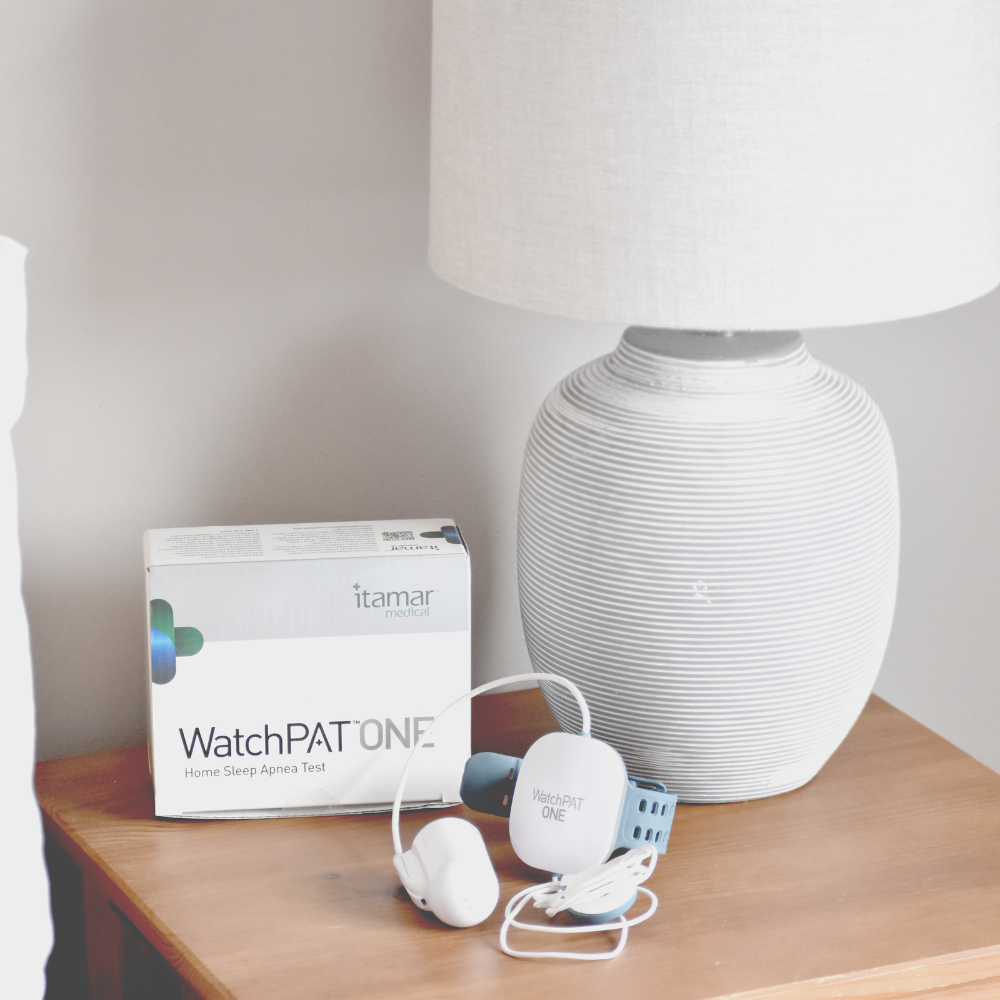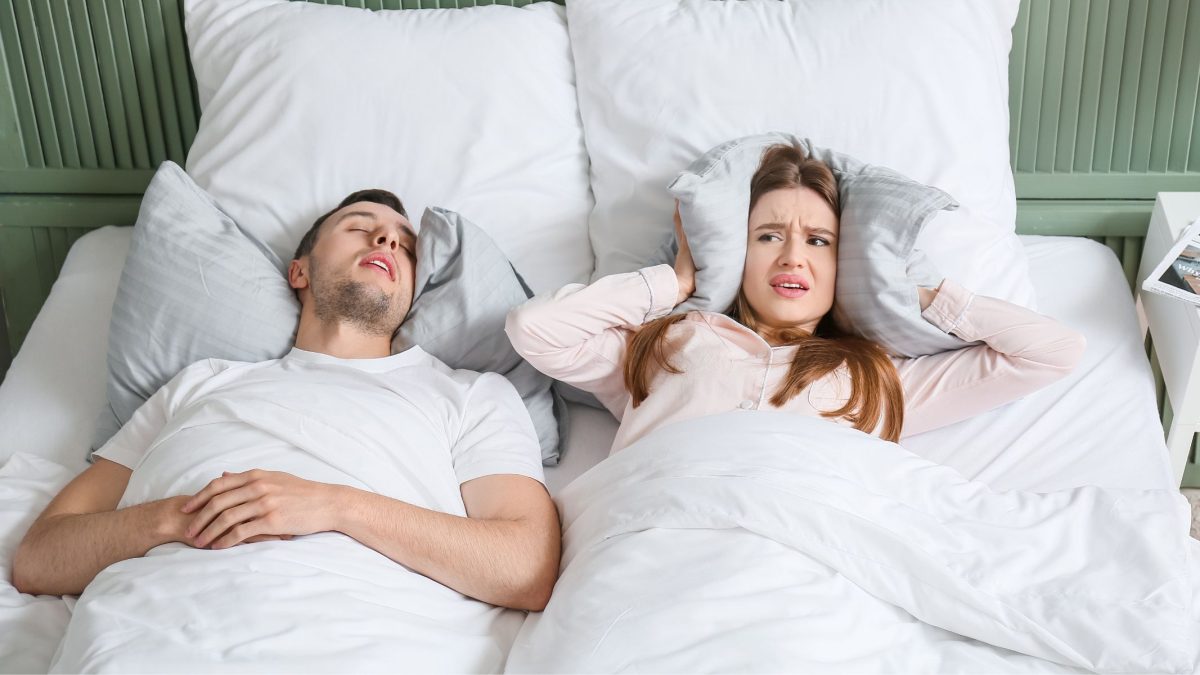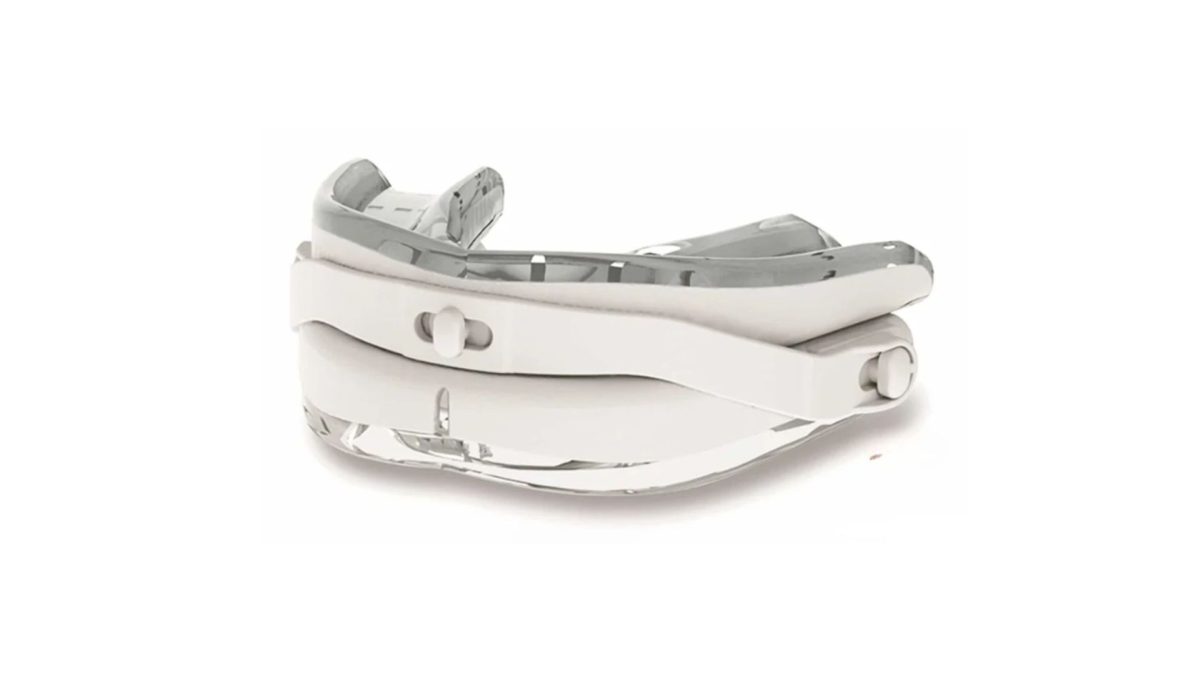Mandibular Advancement Devices (MADs) are small mouthguards moulded to your mouth that gently pull the lower jaw forward to increase airflow during sleep.
Fact Checked
Intus Healthcare’s writers, customer service team, and sleep experts review and ensure this information is accurate.
Last updated on April 1st, 2025 at 09:02 am
Are you struggling to sleep because your husband snores so loud?
Snoring affects millions of households, causing sleepless nights and strained relationships. Around 41.5% of the UK adult population snore, and the ratio of male to female snorers is 2.3:1 (1).
But beyond the noise, snoring could signal a serious health condition called Obstructive Sleep Apnoea (OSA).
We understand how difficult it can be to fall asleep next to a snorer; that’s why we’ve created this article to outline the possible reasons for snoring and how you can get better sleep.
Table Of Contents
Why does my husband snore so loud that I can’t sleep?
Snoring occurs due to partial airway obstruction during sleep. For those who snore, this typically happens when the throat muscles relax, leading to narrowing of the upper airway. This causes vibrations in the soft tissues of the airway, including the soft palate, producing a snoring sound.
Possible reasons your husband snores:
Smoking: There is a direct association between snoring and smoking. This is because cigarette smoke irritates the nasal passages and throat.
Nasal congestion and inflammation can make breathing harder, increasing the risk of snoring. Even passive smoke from cigarettes can contribute to nasal blockages and worsen snoring.
Similarly, vaping can also trigger snoring due to the presence of nicotine and other chemicals, which can inflame the airways, increasing the likelihood of snoring.
If your husband smokes or vapes, reducing or quitting these habits can help to alleviate his snoring and improve overall respiratory health.
Alcohol: You may wonder why your husband’s snoring worsens when he drinks. This is because alcohol relaxes the throat muscles, which can increase the risk of airway collapse and snoring.
Although you may think that alcohol helps you to fall asleep, it does not. Consuming too much alcohol reduces your sleep quality and can increase nighttime awakenings.
Encouraging your partner to reduce their alcohol intake, specifically within 4-6 hours before sleeping, can help their snoring and sleep quality.
Medication: Sedatives such as sleeping pills can worsen snoring because they relax the muscles in the body, including those in the throat and airway.
Other medications such as narcotics and antihistamines, can have a similar effect on the body, contributing to increased snoring.
Speak with a healthcare provider. If you think these medications are related to your husband’s snoring, they may be able to help.
Weight: Excess weight is one of the biggest reasons for snoring, particularly when there is increased fat around the throat and neck. This extra fat adds pressure on the upper airway, leading to narrowing and increased vibration of soft tissues during sleep. If your husband is overweight, suggesting weight loss may help to reduce or stop his snoring.
Obstructive Sleep Apnoea: One of the most common causes of snoring is Obstructive Sleep Apnoea (OSA). This sleep condition causes the upper airway to narrow or collapse during sleep, which causes breathing to stop and start throughout the night. These interruptions in airflow often result in loud, disruptive snoring.
Other symptoms of Sleep Apnoea include:
- Choking in sleep
- Poor concentration
- Memory loss
- Daytime fatigue
- Tiredness at the wheel
- Morning headaches
OSA is linked to severe health complications. If left untreated, it can increase the risk of heart failure by 140%, the risk of stroke by 60%, and the risk of coronary heart disease by 30% (2).
How to Tell If Your Husband Might Have Sleep Apnoea

Home Sleep Apnoea Test
The test monitors your heart rate, snoring intensity, blood oxygen levels, body positioning, and more, providing accuracy comparable to testing used in sleep clinics for in-depth sleep analysis.
The simple-to-use test takes just one night to complete, and results are returned within two working days after completion.
Our experienced NHS-qualified sleep professionals independently analyse all studies, providing follow-up advice and support.
Order your at-home sleep test today to get results in just 48 hours!
Anti-snoring devices:
From nasal dilators to chin straps, there are many devices to help reduce your husband’s snoring. Click the options below to explore effective anti-snoring products on Intus Healthcare.
Encourage your husband to try nasal strips or a humidifier if snoring is due to nasal congestion.
As well as making lifestyle changes such as quitting smoking, reducing alcohol intake, and maintaining a healthy weight. Additionally, asking your husband to sleep on their side can help to open the airway and reduce snoring and apnoeas.
How do I sleep when my husband snores so loudly?
Sleeping next to a snorer is hard, but there are effective ways to improve your sleep quality.
- Ask your partner to address their snoring: Asking your husband to treat their snoring will help both of you sleep better.
- Ear plugs: Using ear plugs can help block out disruptive noise around you.
- Go to sleep first: Choosing to sleep before your partner allows you to fall asleep first so you aren’t disturbed by the snoring.
- White noise: Various smartphone apps play white noise that can help mask snoring, such as White Noise Deep Sleep Sounds and Atmosphere.
- Sleep separately: If you feel there is no other option and are feeling exhausted, sleep in separate rooms occasionally to prioritise your rest.
Sleeping next to a snorer can affect your sleep quality and harm your relationship.
Not getting enough sleep also affects your and your partner’s mental and physical health, making it hard for you to concentrate and get on with daily life tasks.
Summary
You don’t have to suffer through sleepless nights. There are solutions, whether it’s addressing lifestyle changes, trying anti-snoring devices, or testing for Sleep Apnoea. Take the first step toward better sleep for both of you.
Identifying the root cause of your husband’s snoring will help you to determine the next steps to treat it.
If your partner shows signs of Sleep Apnoea, he should take a sleep test. Our simple home test takes just one night to complete, and results are returned within two working days.
Please get in touch with us for any advice or guidance regarding Sleep Apnoea testing and treatment.
About Our Editorial Team
Danni is a degree-educated content writer passionate about helping those with Sleep Apnoea sleep better; she works closely with our clinical and customer care teams to ensure that each article is thoroughly researched and accurate.
Her writing aims to inform, support, and advise readers about Sleep Apnoea, helping to raise awareness and promote effective treatment options.
She has written many health-focused articles, reaching hundreds of readers annually, to help people sleep better and live healthier lives.
Lateisha King is an experienced Sleep Clinician with advanced training in polysomnography and respiratory health.
With over six years of experience, including at the prestigious Guy’s and St Thomas’ NHS Foundation Trust Hospital, she has conducted and reviewed more than 500 diagnostic sleep studies.
Her expertise in sleep science ensures that all articles align with the latest data and treatment protocols, providing readers with trustworthy and practical advice to improve their sleep health and overall well-being.
References
- British Snoring and Sleep Apnoea Association. Press and Media Information. Available at: https://britishsnoring.co.uk/media.php. Accessed: 13.12.2024.
- Jean-Louis, G., Zizi, F., Clark, L. T., Brown, C. D., & McFarlane, S. I. (2008). Obstructive Sleep Apnea and Cardiovascular Disease: Role of the Metabolic Syndrome and Its Components. Journal of Clinical Sleep Medicine. Available at: https://pmc.ncbi.nlm.nih.gov/articles/PMC2546461. Accessed: 13.12.2024.







